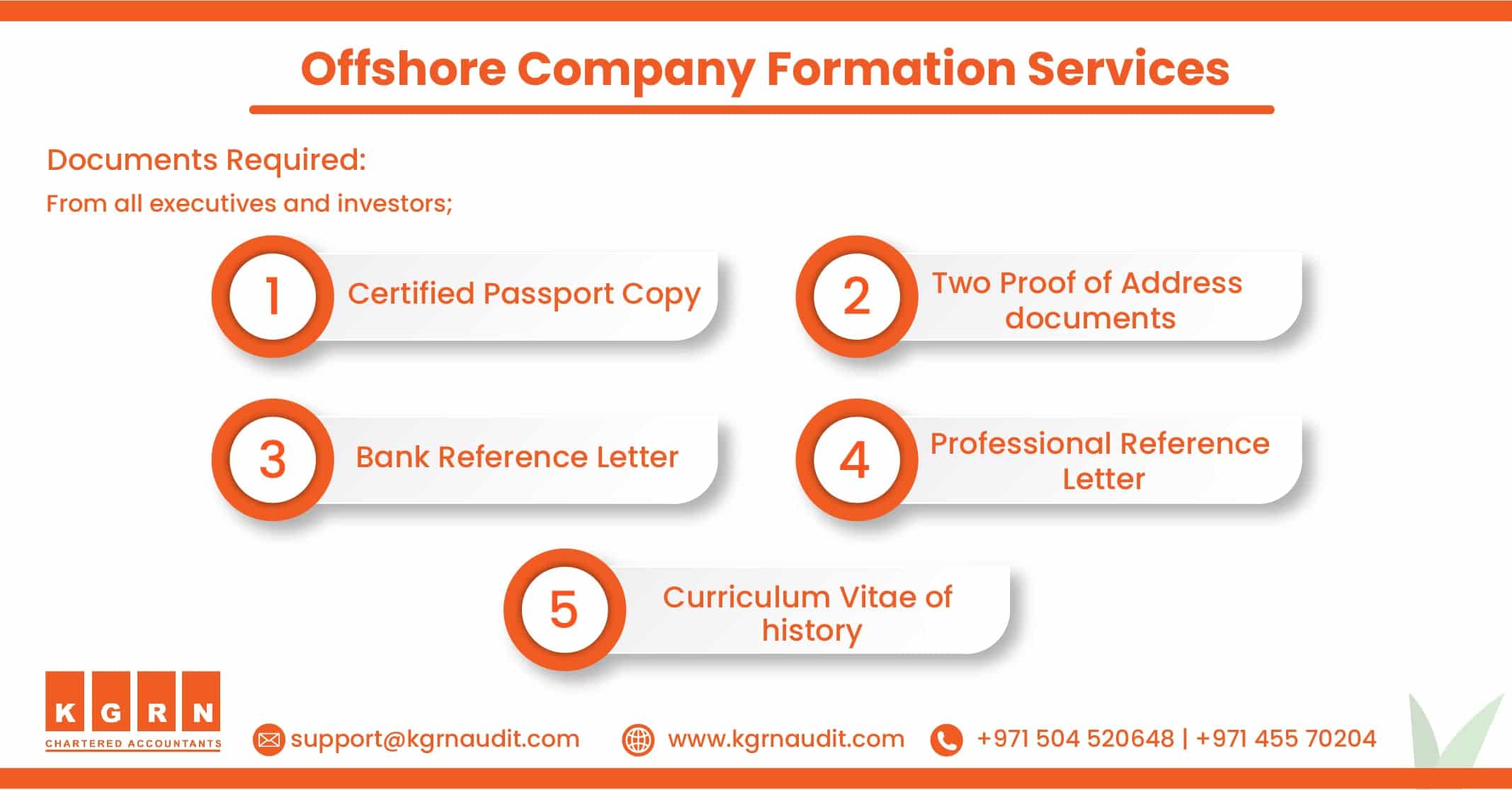Offshore Company Formation for Privacy and Financial Freedom
Offshore Company Formation for Privacy and Financial Freedom
Blog Article
Navigating the Globe of International Service: Insights on Offshore Company Formation
Offshore Company Formation provides a tactical opportunity for worldwide company operations. It provides notable advantages, such as tax obligation optimization and boosted personal privacy. The process is not without its challenges. Understanding the intricacies of regulatory needs and different jurisdictions is vital. As businesses think about these choices, the steps included can substantially influence their long-lasting success. What are the essential factors that can lead to efficient offshore monitoring?
Recognizing Offshore Firms: Interpretation and Function
Offshore business have actually come to be a focal factor in worldwide business discussions because of their unique lawful and economic structures. These entities are developed in jurisdictions outside of the owner's nation of house, commonly with favorable governing atmospheres. Normally, overseas business offer numerous objectives, such as possession defense, tax optimization, and enhanced privacy. They can operate in multiple sectors including trade, modern technology, and financing, giving flexibility for worldwide operations.The defining quality of an overseas Company is its capacity to conduct company worldwide while gaining from decreased tax obligations and regulatory concerns. This framework attract business owners and capitalists seeking to expand their profiles and take care of risks properly. In addition, lots of overseas territories offer incentives to bring in international financial investment, causing a rise in the Formation of these firms. Comprehending the definition and objective of overseas business is crucial for steering via the intricacies of global commerce and funding flow.
Trick Advantages of Offshore Company Formation
The Formation of an overseas Company supplies a number of compelling advantages that draw in entrepreneurs and investors alike. Among the key benefits is tax obligation optimization; numerous territories supply favorable tax obligation prices or exceptions, enabling businesses to maximize profits. In addition, overseas companies usually appreciate higher confidentiality, as several territories have stringent personal privacy legislations safeguarding the identities of Company owners and shareholders.Another substantial benefit is property protection. Offshore entities can secure properties from political instability and financial downturns in the owner's home nation. These firms can help with global profession, giving simple access to international markets and streamlining cross-border transactions.The versatility in corporate structure also allures to service proprietors, as overseas firms can be tailored to satisfy specific functional requirements. Generally, the critical Formation of an offshore Company can result in boosted financial security, operational effectiveness, and a robust international presence.

Usual Obstacles in Developing Offshore Entities
Developing offshore entities provides a number of difficulties that organizations have to browse. Key concerns consist of regulatory conformity, which can differ significantly throughout jurisdictions, and the effect of social distinctions on operations. Additionally, companies need to consider the threats and expenses connected with preserving an overseas existence, which can affect total practicality.
Regulative Conformity Issues
When they seek to develop overseas entities, steering governing compliance problems presents considerable challenges for businesses. Each territory has its very own collection of laws and regulations, which can differ extensively and might be tough to browse. Business frequently deal with challenges pertaining to tax compliance, anti-money laundering regulations, and coverage requirements. Furthermore, modifications in international tax obligation regulations can produce uncertainty, making it crucial for organizations to stay upgraded on compliance obligations. Failing to adhere to these laws can cause extreme penalties, including penalties and reputational damages. Comprehending the legal framework and involving with neighborhood specialists is vital for successful offshore procedures, making sure that companies can operate within the boundaries of the regulation while maximizing their worldwide approach.
Cultural Differences Impact

Cost Factors To Consider and Risks
Steering through the monetary landscape of overseas entity Formation offers various price considerations and fundamental threats. Initial setup costs usually include legal fees, registration costs, and compliance fees, which can gather significantly. Additionally, recurring upkeep expenses such as annual costs and bookkeeping solutions must be factored in. Rising and fall regulatory atmospheres in different jurisdictions present threats, potentially leading to lawful complications or unanticipated prices. Businesses might additionally encounter difficulties associated with taxes, banking, and reputational problems, which can impact success and operational efficiency. Consequently, potential business owners need to conduct thorough due persistance and financial projecting to reduce these risks and assure sustainable development. Comprehending these expense factors to consider is important for effective overseas company endeavors.
Actions to Set Up an Offshore Company
Establishing an overseas Company includes numerous vital steps that call for cautious factor to consider. Trick factors consist of selecting the ideal territory and ensuring compliance with regional regulations, together with gathering essential paperwork. Comprehending these aspects is necessary for a successful overseas service setup.
Choosing the Right Jurisdiction
Choosing the right territory is vital for anyone wanting to establish an overseas Company, as it can considerably impact the business's lawful obligations, click this site tax obligation responsibilities, and functional convenience. Numerous aspects should be taken into consideration, consisting of the political stability, governing setting, and tax obligation rewards used by prospective territories. Popular selections frequently include nations with desirable tax routines, such as the British Virgin Islands or Cayman Islands, as a result of their reduced or no tax prices. In addition, the simplicity of working and the credibility of the jurisdiction can affect financier confidence and market access. Ultimately, an educated choice based on comprehensive research study will guarantee the offshore Company is positioned for long-term success and conformity with worldwide standards.
Required Documentation and Conformity
When establishing an overseas Company, recognizing the essential documents and compliance requirements is important to guarantee a smooth procedure. Secret papers generally consist of a certificate of incorporation, a memorandum and posts of association, and evidence of identification for directors and shareholders. Some jurisdictions may call for additional info, such as company strategies or bank recommendations. Compliance with neighborhood legislations is vital, which commonly involves appointing a signed up representative and keeping a licensed office. Regular reporting and adherence to tax obligation commitments should additionally be considered. Failing to follow these needs can result in fines or even dissolution of the Company. Extensive preparation and appointment with lawful experts can assist navigate these intricacies successfully.
Picking the Right Jurisdiction for Your Offshore Company
Just how can one figure out one of the most ideal jurisdiction for an overseas Company? Selecting the best jurisdiction needs careful consideration of numerous variables. Initially, the legal and tax environment plays an essential function; territories with positive tax programs may enhance company productivity. Additionally, the political security and financial environment of a location can impact lasting organization viability.Another important aspect is the accessibility of financial services and banking framework, which promote smooth procedures. Possible company owner need to likewise consider the ease of operating, including the speed of registration and the clarity of regulations.Furthermore, language obstacles and cultural distinctions can impact procedures; consequently, straightening with a jurisdiction that lines up with service goals and individual comfort is vital. Ultimately, thorough research study and expert recommendations can assist entrepreneurs in making an educated decision that lines up with their tactical goals.
Conformity and Regulative Considerations

Ideal Practices for Managing an Offshore Organization
Managing an overseas company needs critical planning and careful implementation to enhance performance and helpful hints mitigate dangers. Initially, developing a robust conformity framework is necessary to navigate differing guidelines throughout territories. Regular audits and risk evaluations assist identify potential vulnerabilities.Moreover, leveraging regional proficiency via collaborations with local specialists can enhance operational efficiency and cultural understanding. Using innovation, such as cloud-based monitoring systems, streamlines interaction and data administration, enabling better decision-making. Furthermore, preserving transparent financial documents and making certain prompt tax obligation filings are vital to maintain the Company's stability. Spending in personnel training and development cultivates a skilled workforce, advertising advancement and adaptability.Finally, developing clear efficiency metrics and vital performance signs (KPIs) helps evaluate company progression and educate tactical modifications. By adhering to these ideal methods, firms can successfully manage their overseas operations, guaranteeing long-term success and sustainability in a competitive global marketplace.
Frequently Asked Concerns
What Is the Cost of Developing an Offshore Company?
The price of creating an overseas Company varies extensively depending on jurisdiction, legal needs, and solutions needed. Generally, expenditures can vary from a few hundred to several thousand bucks, consisting of enrollment, conformity, and annual charges.
For how long Does It Take to Establish an Offshore Entity?
The time needed to develop an overseas entity differs considerably, generally ranging from a couple of days to numerous weeks (offshore company formation). Elements influencing this duration include jurisdiction, required paperwork, and the effectiveness of the service copyright included
Can People Kind Offshore Companies Without a Business Partner?
Individuals can undoubtedly create offshore firms without a company companion. Several territories allow single-member entities, equipping business owners to establish and handle their organizations separately, while still gaining from prospective tax obligation benefits and legal defenses.
Are There Any Kind Of Tax Obligation Benefits for Foreign Investors?

What Kind Of Businesses Generally Use Offshore Companies?
Offshore companies are often made use of by various markets, including ecommerce, technology, and financing. These entities frequently offer purposes such as possession defense, tax obligation optimization, and personal privacy, interesting both multinational firms and specific business owners. Offshore companies have come to be a focal factor in worldwide organization conversations due to their unique legal and economic structures. They can operate in several industries consisting of money, trade, and technology, offering adaptability for international operations.The defining characteristic of an offshore Company is its ability to conduct company internationally while benefiting from minimized tax obligation liabilities and regulative burdens. In addition, overseas firms frequently enjoy higher confidentiality, as numerous jurisdictions have strict privacy legislations protecting the identities of Company owners and shareholders.Another substantial benefit is possession protection. These companies can facilitate global trade, offering easy accessibility to worldwide markets and streamlining go to this web-site cross-border transactions.The flexibility in company structure also appeals to service proprietors, as overseas business can be customized to meet specific operational demands. Selecting the best territory is vital for any person looking to set up an overseas Company, as it can significantly affect the company's legal obligations, tax liabilities, and functional simplicity.
Report this page